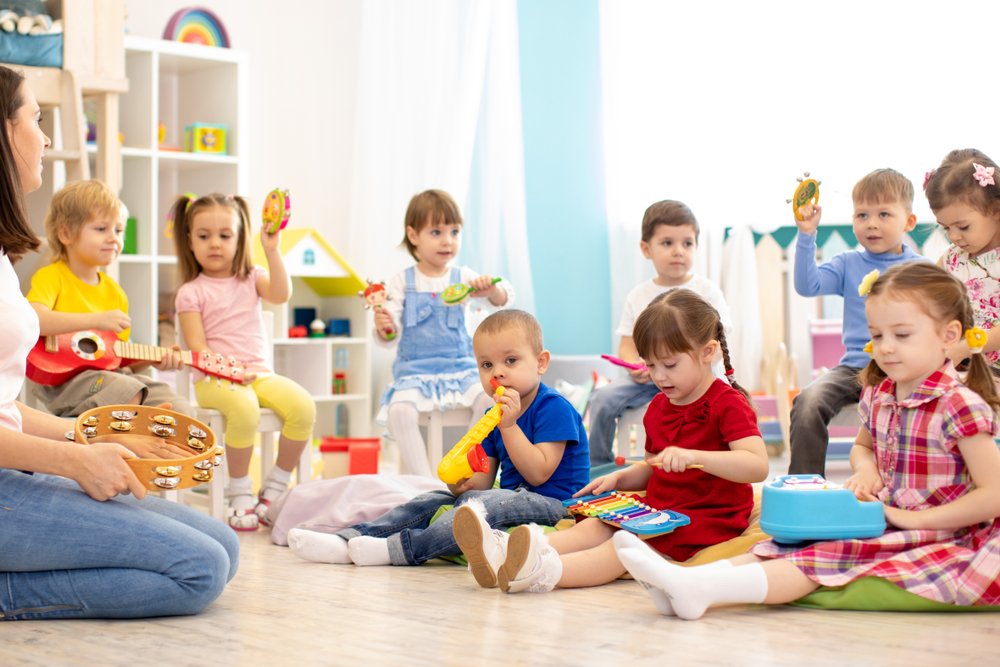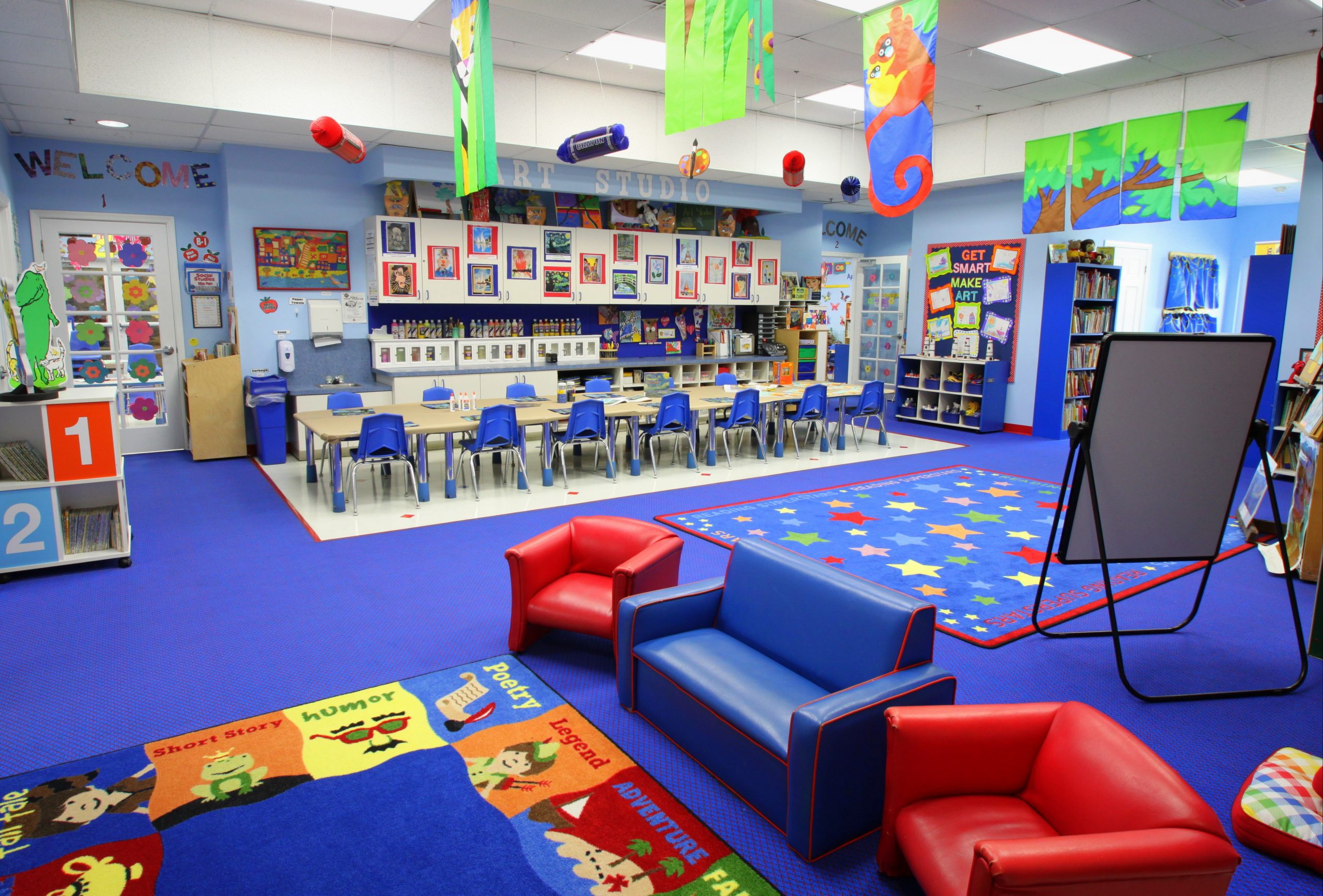Locate Top-Rated Daycare Near Me for Infants: Your Guide to High Quality Treatment
Locate Top-Rated Daycare Near Me for Infants: Your Guide to High Quality Treatment
Blog Article
The Role of Daycare in Promoting Your Young child's Emotional and Cognitive Skills Through Structured Play and Educational Activities
The function of day care in nurturing a kid's cognitive and psychological advancement is often taken too lightly, yet it serves as a pivotal atmosphere for organized play and academic tasks. With carefully created interactions and experiences, caretakers assist in essential abilities such as psychological understanding and analytic.
Value of Organized Play
Structured play is a vital element of toddler growth, as it provides a structure whereby children can participate in purposeful interactions and discovering experiences. This kind of play is intentionally created to foster different developing abilities, such as cognitive, social, and physical abilities. By joining organized activities, young children discover to comply with rules, take turns, and accept peers, every one of which are essential for their interpersonal skills.

Additionally, structured play frequently integrates educational components, such as counting, color acknowledgment, and language advancement, seamlessly incorporating learning right into fun tasks. This method not just catches kids' interest yet likewise reinforces necessary concepts in a delightful way. On the whole, structured play is critical in advertising a balanced advancement, gearing up kids with the foundational abilities necessary for future knowing and social communications.
Emotional Development in Day Care
Day care settings play an important function in cultivating psychological development in toddlers. These settings offer youngsters with possibilities to communicate with peers and caretakers, assisting in the growth of important social-emotional skills. With routine interactions, young children find out to identify and share their feelings, such as despair, happiness, or frustration, which is essential for their psychological maturity.

In addition, the structured environment of day care permits children to experience a range of feelings in a safe area. They find out to take care of feelings of separation stress and anxiety when transitioning from home to childcare and develop durability as they navigate brand-new partnerships and experiences. On the whole, the emotional development fostered in daycare not only benefits toddlers throughout their formative years however likewise lays the foundation for healthy and balanced social relationships and emotional well-being throughout their lives.
Cognitive Skills Through Tasks
Via taking part in a selection of tasks, kids in childcare setups can significantly enhance their cognitive skills. Structured play and instructional jobs are critical in advertising cognitive growth, as they give opportunities for exploration, problem-solving, and crucial thinking. Tasks such as problems, foundation, and memory video games challenge toddlers to think artistically and practically, cultivating crucial abilities like spatial understanding and pattern recognition.
Furthermore, interactive storytime sessions encourage language growth and understanding. By listening to stories, kids discover to process information and involve their creativities, which boosts their narrative skills and vocabulary. Additionally, hands-on activities including crafts and arts promote fine electric motor abilities while also urging self-expression and creative thinking.
Sensory play, such as visit the website sand or water activities, permits young children to explore different appearances and materials, promoting inquiry-based discovering. These experiences not only boost cognitive capabilities but likewise instill a feeling of interest concerning the globe around them - daycare for infants near me. Generally, the diverse variety of cognitive activities supplied in daycare settings plays a critical duty in shaping a kid's ability to assume critically, resolve issues, and engage meaningfully with their environments
Social Links and Interaction
In a caring atmosphere, kids naturally create social links and take part in interactions that are vital for their emotional and social advancement. Childcare settings supply an unique chance for youngsters to interact with peers, promoting crucial social abilities such as sharing, participation, and conflict resolution. These interactions assist kids learn to navigate their emotions and comprehend the viewpoints of others, which are crucial elements of psychological knowledge.
Through structured play and group activities, toddlers are urged to communicate their thoughts and feelings, improving their spoken abilities and advertising compassion. Involving with peers likewise presents them to varied social standards and actions, enriching their understanding of social dynamics. Additionally, constant interaction with other kids assists to develop a feeling of neighborhood, supplying an assistance system that is beneficial for emotional growth.
As young children join collaborative tasks, they find out the relevance of patience, teamwork, and arrangement. These fundamental social abilities are important as they get ready for future relationships, both in instructional setups and beyond. Inevitably, the social links formed in childcare play a considerable function fit a young child's ability to interact favorably and efficiently with others throughout their lives.
Role of Caretakers in Development

Caregivers play a pivotal duty in cultivating young child growth, particularly in the context of the social interactions they experience in childcare settings. These professionals provide a caring environment where toddlers can explore their feelings and cognitive capabilities with structured play and academic activities. By taking part in purposeful discussions, caretakers support language development and boost social abilities.
Additionally, caregivers design psychological reactions and appropriate actions, assisting toddlers find out compassion and conflict resolution. Their presence additionally produces a complacency, which is necessary for kids to with confidence discover their surroundings and involve with peers.
In addition to psychological and social support, caretakers are critical in implementing instructional curricula that promote cognitive development - baby daycare near you could try these out me. They present age-appropriate activities that stimulate inquisitiveness, important thinking, and analytic skills. This organized approach makes sure that toddlers not just appreciate their playtime yet also gain foundational expertise vital for future knowing
Inevitably, the quality of caretaker communications substantially impacts a young child's total development. By promoting a engaging and supportive environment, caretakers assist lay the foundation for healthy emotional and cognitive development, outfitting children with necessary abilities for their lifelong journey.
Conclusion
To conclude, childcare acts as a vital environment for promoting psychological and cognitive growth in toddlers. Through structured play and , kids experience substantial development in their capacity to identify and express emotions, develop vital believing abilities, and kind crucial social links. The duty of caretakers contributes in helping with these experiences, making sure that each kid advantages from a nurturing ambience that advertises lifelong emotional well-being and cognitive development.
The role of daycare in nurturing a toddler's emotional and cognitive growth is often taken too lightly, yet it serves as a pivotal environment for structured play and educational activities. Overall, structured play is crucial in advertising a well balanced advancement, gearing up toddlers with the fundamental abilities required for future knowing More Help and social interactions.
Childcare atmospheres play an important function in promoting emotional development in kids. Generally, the emotional development cultivated in day care not only advantages toddlers throughout their formative years but additionally lays the groundwork for healthy and balanced social connections and emotional health throughout their lives.
With structured play and team tasks, toddlers are urged to communicate their sensations and thoughts, boosting their verbal abilities and promoting empathy.
Report this page